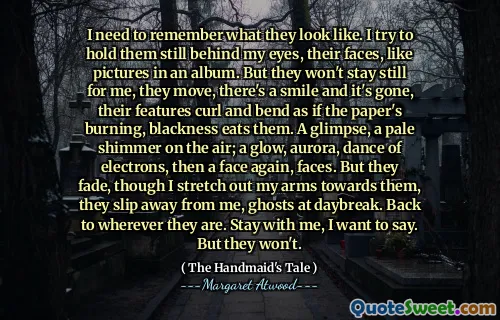You can't make an omelette without breaking eggs, is what he says. We thought we could do better.Better? I say, in a small voice. How can he think this is better?Better never means better for everyone, he says. It always mean worse, for some.
In this excerpt from "The Handmaid's Tale" by Margaret Atwood, a character reflects on the notion that progress often comes at a cost. The phrase "you can't make an omelette without breaking eggs" suggests that sacrifices are necessary for achieving goals. However, this sentiment is challenged when a character expresses doubt about whether the outcome is truly better for everyone involved.
The dialogue highlights a stark truth: while some may benefit from changes or improvements, there are always those who will suffer as a result. The assertion that "better never means better for everyone" underscores the complexity of progress and the often unequal distribution of its effects, revealing a fundamental political and ethical tension within society.






